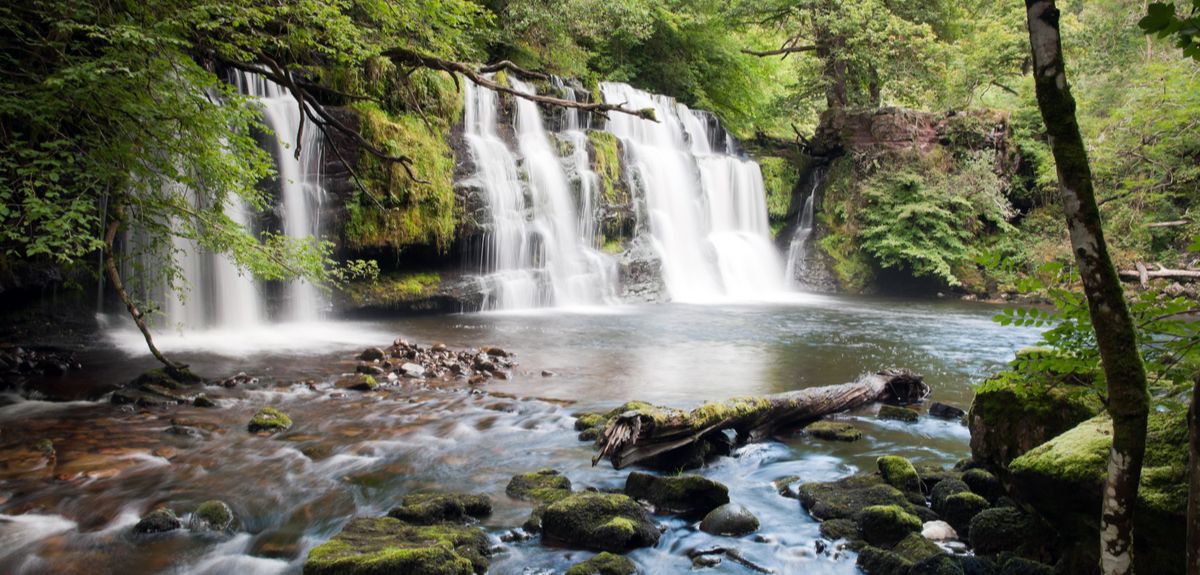
Image credit: Shutterstock
Who owns our natural resources?
By Kevin Grecksch and Jessica Holzhausen
Property rights are essential in western market societies and often taken for granted. They are ubiquitous and we do not question them. They are also a crucial element in the discussion of natural resource management.
In the context of climate change, understanding our concept of property rights, and how it influences our interpretation of who natural resources belong to, becomes increasingly important. At a basic level, property rights usually provide the owner exclusive, guaranteed rights, which always includes the notion of excludability. If an individual is the proprietor of a natural resource, this person determines access and allocation. This exclusive right is usually protected by the state. Problems stem from when property rights on resources cause inequalities of access to necessary resources like water, or are an obstacle for the successful implementation of climate adaptation measures.
Many would see property rights as ‘natural’ – yet they are far from natural. They express a social relationship that is very specific to western liberal democracies. For instance, many indigenous people have a concept of property and possession that does not serve the individual but society. It is often based on customary law with complex structures and rules to protect and regulate access to natural resources and the knowledge about it.
Property rights have been the subject of study of almost all well-known political theorists and philosophers. No matter if we talk about Thomas Hobbes, John Locke, Adam Smith or Jean-Jacques Rousseau, property rights always form an intricate part of the social contract that defines the relationship between individuals and the state. For John Locke, a key justification in favour of property rights is that the state guarantees the exclusiveness of a property and defends a person’s right to it. To this day Locke’s justification is a cornerstone of political and economic reasoning in the United States of America. To question property rights is to question the very reason of the state.
On the other hand, we find theorists like the French 19th century anarchist Pierre-Joseph Proudhon. He claimed that ‘property is robbery’ and argued that the property of the nobility and the clergy was based on faineance (i.e. indolence) because the wealth was not earned through labour, but instead stolen from those who laboured to create wealth. Or as the American unionist Bill Haywood said: The mine owners did not find the gold, they did not mine the gold, they did not mill the gold, but by some weird alchemy all the gold belonged to them!
In recent decades, property rights have been discussed mainly within a law and economics framework, thereby neglecting other perspectives. With environmental and societal challenges such as climate change reaching the top of political and social agendas, property rights may prove again to be a crucial issue. However, we find that the concept is still used in a simplistic manner. Good examples of this one-dimensional interpretation are The Economics of Ecosystems and Biodiversity (TEEB), an initiative with focus on the economic benefits of biodiversity, and the Nagoya Protocol on the fair and equitable sharing of benefits arising from the utilisation of genetic resources. Both reduce the value of natural resources to its economic value and the introduction of property rights is seen as a panacea, thereby paying little or no attention to the social and cultural value of natural resources.
Hence, a new perspective, taking into account narratives surrounding property could provide useful insights and add to the mere administrative and regulatory perspective of property rights. Narratives are people’s accounts of events by which they or others were affected. They often come in the form of stories. In the context of property rights, narratives look at stories told about property rights, at how people see themselves and others in this social construct, at stereotypes, collective memory and how property influences identities – especially collective identities.
The UK has a complex, multilevel administration system where state legislation has not always addresses local necessities, and where local authorities have often felt let down by a central government perceived to be too far away to understand local problems. A good example occurred in Wales in the 1960s, when the Tryweryn Valley was flooded to create a reservoir to provide water for the city of Liverpool. This uprooted the community of Capel Celyn, where people lost their homes, their school and their church. Despite protests in Wales and the fact that every single Welsh MP voted against the scheme, it was overruled by central government and allowed for compulsory purchases of land. Liverpool City Council obtained authority through an Act of Parliament, thereby avoiding having to gain consent from Welsh planning authorities. Protests against the scheme were dramatic – protestors placed an explosive device at the base of an electrical transformer and microphone wires were cut during the opening ceremony. Even today, “Cofiwch Dryweryn” (Remember Tryweryn) graffiti can be found on walls and bridges in the area upholding the narrative of an unjust scheme.
Hence, property rights may exist and they provide legal certainty, but they are not the end of the story. People have an attachment to nature, to places and often refer to ‘my river’ or ‘my forest’. Successful adaptation to climate change should take these narratives into account. In addition, people often have a deep knowledge about natural resources in their area and tapping into this knowledge could prove to be very useful, and also support acceptance and legitimacy of climate change adaptation measures.
Dr Kevin Grecksch is a British Academy Postdoctoral Fellow at the Centre for Socio-Legal Studies at the Faculty of Law. Dr Jessica Holzhausen is a writer and historian.
Find out more about Oxford's environment research at the True Planet website.